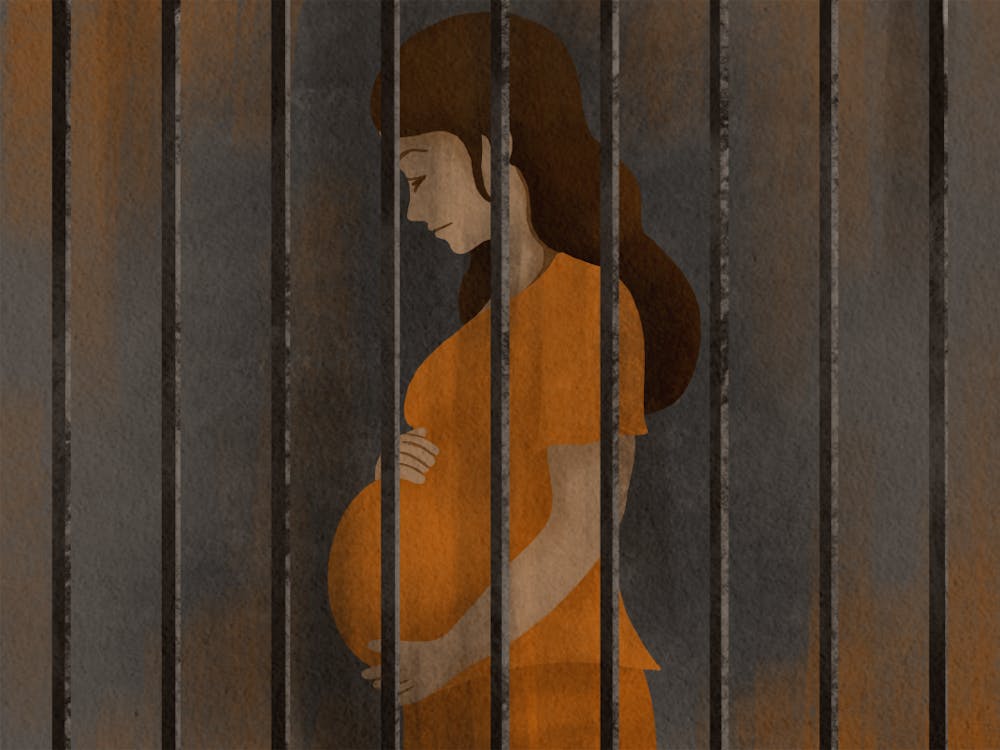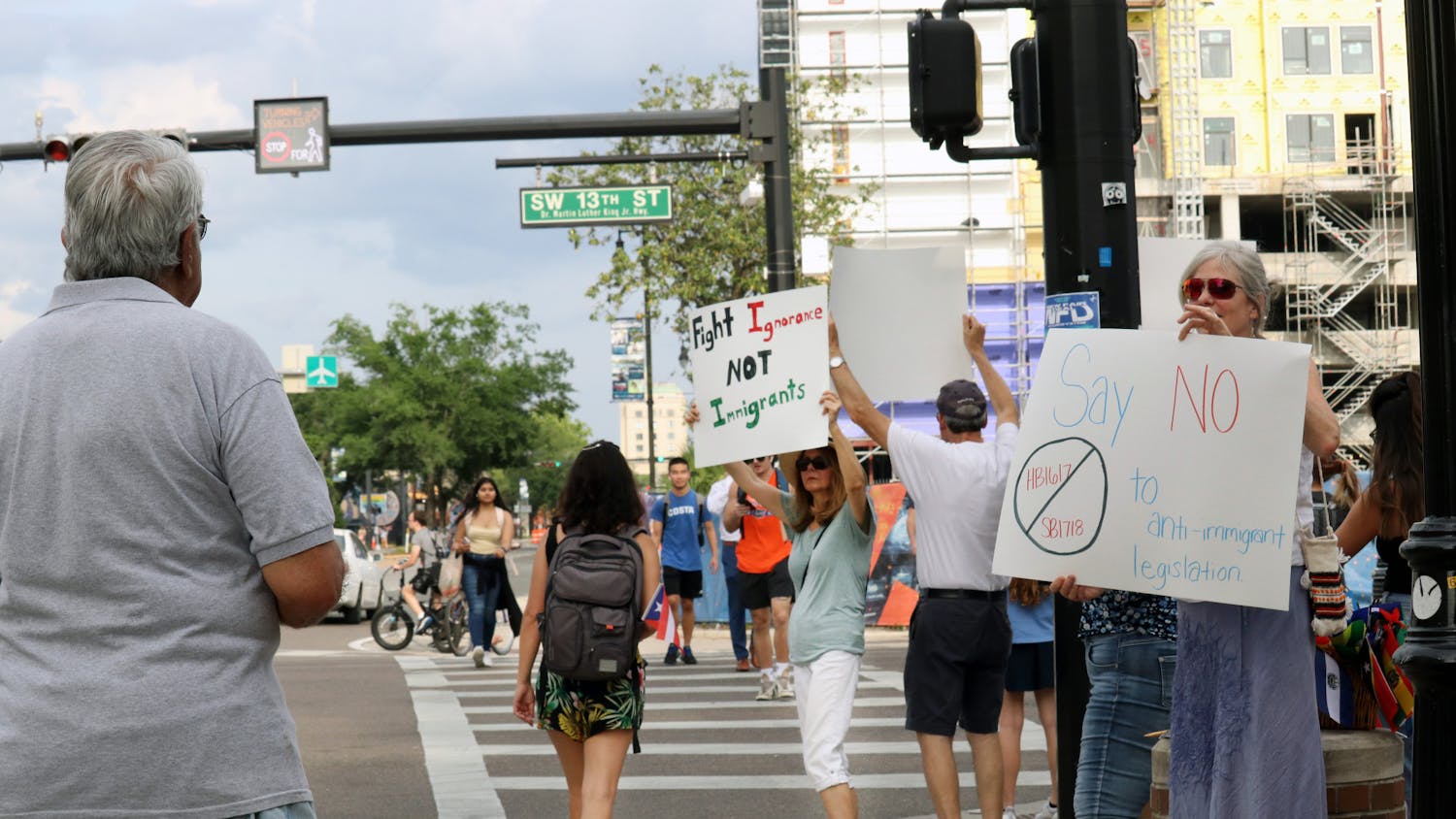A bill with roots in a Gainesville controversy could delay arrested pregnant women from being placed behind bars until after they give birth.
Florida Senate Bill 730 — referred to as “Ava’s Law” after the child former inmate Erica Thompson lost after giving birth in the Alachua County Jail in August 2021 — would allow women charged with felonies to request to delay their sentence until after they’ve given birth.
While the Senate version hasn’t been voted on yet, its House equivalent, Florida House Bill 779, passed through its last committee April 19, 19-1. It hangs in the balance as the Senate considers when it will put the bill on its committee agendas, and the House waits to schedule two floor votes.
One of the House bill’s sponsors, Dianne Hart, D-Tampa, said Ava’s Law will prioritize the wellbeing of mothers throughout the state. After visiting 50 prison facilities and multiple pregnancy wards, she saw firsthand the conditions weren’t suitable for childbirth, she said.
“I promise you,” Hart said in a hearing, “that is not a place we want our babies to be born.”
If passed, incarcerated women would be offered the option to take a pregnancy test. Pregnant women could then petition to defer incarceration until 12 weeks after the baby’s delivery or the pregnancy’s end – whichever occurs sooner – in order to receive prenatal care and deal with postpartum issues.
Some UF students felt the legislation was a starting point for more adequate women’s health care in the criminal system.
Pooja Manjakandy, a 20-year-old UF political science sophomore, also studies communications, social justice and public policy. The issue meets an intersection of poverty, criminal justice reform and health care concerns, she said.
“This bill seems to be trying to build some kind of … baseline care for these women,” she said.
Care needed to be focused on mothers just as much as the children, she added, as maternal mortality rates rose nationwide about 9 percentage points between 2020 and 2021 according to a Centers for Disease Control and Prevention study.
Ava’s Law was initially filed in Florida in response to the arrest of then-25-year-old Erica Thompson in 2021. When in Alachua County Jail, she went into labor and delivered Ava three months prematurely. Ava died after Thompson was transported to the hospital.
Thompson said her continued screams for help went unanswered. The Alachua County Sheriff’s Office disputed her claims with time-stamped images showing the department checking on her and an internal investigation showed no misconduct.
The jail later changed its health care provider from Corizon Health to Wellpath February 2022, according to a Main Street Daily News report. Corizon Health has settled over a thousand lawsuits in the past five years for alleged misconduct.
Zeba Rias, a 19-year-old UF political science and psychology sophomore, said she felt the bill was positive but didn’t fix the root issue. Prenatal care and health care as a whole within prison systems, she said, need to be improved.
“There has been a history of neglect when it comes to giving health care to women,” Rias said.
Deferring their incarceration, she added, places the burden of quality health care on the mothers and their individual insurance rather than the jails.
The bill was initially filed last year as Florida Senate Bill 630; although the Senate unanimously approved the measure, its companion bill never reached a floor vote in the House. This year’s version remains largely the same, this time specifying a felony conviction to defer sentencing.
To become law, the House and Senate versions of the bill must both pass through any assigned committees, pass the House or Senate floor and then be signed into law by Gov. Ron DeSantis.
The House bill was placed on a calendar for its second floor reading. The Senate bill’s committee hearing isn’t yet scheduled as of April 23.
Aaron Wayt, the legislative chair for the Florida Association of Criminal Defense Lawyers, said the bill should’ve passed last year. The Senate should reach the bill quickly, he said, to allow it to come into effect.
“We believe that this bill represents a positive step towards a more humane and equitable system for all Floridians, and we are proud to support it,” Wayt said.
Contact Aidan Bush at abush@alligator.org. Follow him on Twitter @aidandisto.

Aidan Bush is a fourth-year journalism major and the Summer 2024 Editor-in-Chief of The Alligator. In his free time, he likes to listen to music and go kayaking.






